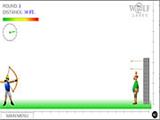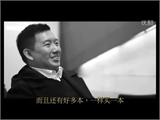Dialogue with AMD Greater China President Deng Yuanchao: Convergence Applications Become Mainstream
Sina Technology News, Beijing Time, April 7th afternoon, AMD Global Senior Vice President and Greater China President Deng Yuanqing was a guest of Sina's interview room on the afternoon of April 6th. He chatted with Cei.net President Li Shuqin and IT Manager World Magazine Editor-in-Chief Li Zheng about the development history and future of the PC industry.
Video: Dialogue with AMD Greater China President Deng Yuanqing Media Source: Sina Technology
Deng Yuanqing stated that from its inception, the PC has greatly changed people's lives. Among these changes, the human-computer interface Windows allows ordinary people to use computers without having to remember various difficult commands. The way people interact with computers and how they use them has altered their lives. In this process, the human-computer interface is the most important.
As for the turning points in the development of PCs, Li Shuqin believed that after the advent of Windows, especially entering the post-586 era, PCs really became simple and easy to operate, making it possible for them to enter thousands of households.
Li Zheng, on the other hand, believed that breakthroughs in applications were also major turning points in the development of PCs.
Regarding such views, Deng Yuanqing emphasized that the APU launched by AMD was a significant turning point in the industry, truly integrating the CPU and GPU together. The integration enables collaborative computing, accelerating each other when needed, leading to very smooth applications. The APU represents one of the biggest breakthroughs in the industry, and the largest revolution in 30 to 40 years.
Regarding the future of PCs, Deng Yuanqing expressed that whether it be the development of mobile internet or the development of PCs themselves, we are indeed entering an era of integrated applications. We have now reached a turning point where overall application drives technological innovation.
Li Zheng indicated that the development of mobile internet is transferring work done in fixed offices to mobile internet. The innovative applications of mobile internet will increasingly demand more from mobile internet devices, requiring them not only to support PC applications but also to face many new applications.
Looking ahead to the future of PCs, Li Shuqin said that in the future, there will be a need for mobility, enhancing the computational power of our portable products. Combined with our current cloud computing and Internet of Things technologies, we will be able to enjoy powerful intelligent computational services based on internet cloud computing, which is the trend of the future.
Below is the transcript of the interview:
Host Yin Jun: Dear Sina netizens, hello everyone. Welcome to the live broadcast of Sina Technology Face-to-Face "President Online". Today, we will discuss the topic of the 30-year history of the PC industry and the future of the PC industry. We have invited three heavyweight guests to share this topic with all netizens, let me introduce them immediately. The first person sitting next to me, we welcome AMD Global Senior Vice President and Greater China President Mr. Deng Yuanqing, welcome.
Deng Yuanqing: Hello everyone.
Host: The second person sitting in the middle is the President of Cei.net, Mr. Li Shuqin, welcome.
Li Shuqin: Hello everyone.
Host: The third person is a media peer and leader, the Editor-in-Chief of IT Manager World Magazine, Mr. Li Zheng, Mr. Li, welcome.
Li Zheng: Hello everyone.
Host: Today is truly a high-end dialogue. Beforehand, we collected questions from netizens on Weibo regarding what they wanted to ask the three executives. One netizen's question was particularly interesting, so let's start with his question.
Netizen: I am very interested in how many PCs the three executives have roughly used. I wonder if the three executives have thought about how many they have used. How many have you used, Mr. Deng?
Deng Yuanqing: I really can't count them all. There must be dozens of them because right now I have 5 or 6 computers at home, and I don't know how many there are in total. Indeed, I started using very large computers. When I was studying, I used mainframe computers, mid-range computers, and PCs at school. Nowadays, even mobile phones are actually computers as they all contain chips. So, I've used many computers.
Host: More than 50?
Deng Yuanqing: Absolutely more than 50.
Host: 80?
Deng Yuanqing: I'm not sure about 80, but definitely over 50.
Host: How many have you used, Mr. Li?
Li Shuqin: I'm not as experienced as Mr. Deng. I must have used around ten to twenty. When I first came into contact with computers, they weren't my own. At school, there were some very primitive computers, and later at work, I used many different ones. I should have used around ten to twenty.
Host: Back then, computers were very precious items; a school might only have a few, and everyone had to share them.
Li Shuqin: It was quite luxurious back then.
Host: Now, everyone has one. Mr. Li, how many have you used?
Li Zheng: There should be dozens of them too.
Host: I assumed media professionals would have used fewer.
Li Zheng: We were among the first to abandon traditional pens and switch to computers for writing articles. I remember it was in 1993, when there was a "pen exchange" campaign in Beijing to start using PCs for writing.
Host: You were among the earliest users. Our first question is to ask each executive to recall their first computer, the first among those dozens they've used. From the design of the question, we aim to look back at the development. Of course, we'll start with your first computer, Mr. Deng. Can you remember it?
Deng Yuanqing: My first real personal computer was when I was in the U.S., and it was a computer with very strong graphic display capabilities. This was before Apple's Macintosh, and I used an engineering computer internally. It was a window-like Windows computer. I remember it very clearly because its font could change at any time, and it was the first time I saw a computer with such powerful font functions, leaving a deep impression.
Host: That was quite old, older than Apple's Macintosh.
Deng Yuanqing: The 1980s.
Host: Over 20 years, nearly 30 years.
Li Shuqin: My first computer was in the 1990s, if I'm not mistaken, it was called the Chinese Learning Machine. I don't remember much about its functions because back then, teachers organized us to use it during class. The only function I remember is typing, and I don't recall much else. Later, in university, computers were still luxury items, and we couldn't afford them. We pooled money with several roommates to buy a computer. By then, we had entered the post-586 era, and Windows had already appeared, leaving a deeper impression. Of course, compared to today's computers, they seem rather outdated and lack many features.
Host: Back then, a single computer could cost over ten thousand yuan, and the value of ten thousand back then was different from today.
Li Shuqin: The computer we assembled in university had a 166 MHz clock speed, a 2GB hard drive, two 4MB memory sticks, and a 4-speed CD-ROM drive. The configuration was roughly like that, very expensive. It had a 14-inch spherical CRT monitor, much more expensive than today's monitors, though its performance cannot compare with today's standards.
Host: Back then, it was absolutely a luxury item, unaffordable for ordinary families. Mr. Li.
Li Zheng: The first computer I used was probably an IBM minicomputer. I could only see the terminal, not the main unit, and I learned programming at school. If we're talking about personal computers, my first was probably a 486. Even back then, a 486 was quite expensive, but the experience of playing games on a 486 was excellent. I remember it was around 1993 when the 486 first came out.
Host: Through comparison, the development and changes in the 30 years since the birth of personal computers have been tremendous. Especially Mr. Deng, who has been involved in the computer industry for over 20 to 30 years, you may have a deeper understanding of its development history. What technological milestones over these 30 years left a particularly deep impression on you?
Deng Yuanqing: Actually, over these 30 years, although I am only 25 years old this year (laughs), my age hasn't increased beyond 25. The most important thing is that after the PC was introduced, it significantly changed people's lives. In the early 1980s, a company introduced the window-based human-computer interface, and later Apple also adopted it. As technology developed, the human-computer interface became increasingly important. Although the PC was introduced in 1981 and initially used DOS, the human-computer interface was very poor at the time, allowing only text input. After the introduction of the Windows interface, ordinary people could use computers without needing to memorize various complex commands. Since then, PCs have changed people's lives, and in this process, the human-computer interface was the most crucial.
Host: The human-computer interface was the most critical milestone. If the other two leaders were to choose an important technological milestone, what would they select? Mr. Li, what would you choose?
Li Shuqin: The appearance of Windows, the latter half being an accelerated development period of about ten years. The characteristic of PCs, which should be called personal computers, was that in the early years, due to price and highly specialized requirements, PCs did not fully realize their potential. After Windows, especially entering the post-586 era, PCs became truly simple and easy to operate, capable of reaching every household. I think this was a very important milestone. After entering the 586 era, we found that PC technology upgrades were in an accelerated state. Initially, the clock speed kept increasing, followed by the emergence of 64-bit systems, then dual-core, now multi-core, and possibly further trends towards integration. So, this could become a major trend.
Host: A series of continuous milestones.
Li Zheng: Just as Mr. Li mentioned, he stopped aging at 25, and the PC industry has developed for 30 years, and I have been in contact with PCs for 20 years. Girlfriends might have changed, but PCs haven't, always accompanying me and becoming increasingly indispensable. We may have more contact with PCs from an application perspective, and breakthroughs in applications. For example, in the early 1990s, they could help us handle many tasks, and now they can handle entertainment and more paid applications. Breakthroughs in applications supported by technology have intertwined and driven the rapid development of the PC industry.
Host: Application breakthroughs are insights from Mr. Li, from different levels. Mr. Deng, there is another question I want to discuss with you. Twenty years ago, the penetration rate of computers in mainland China was 0.7%, meaning that out of 1000 people, there might be 7 computers. Now, in many large and medium-sized cities, computers have become something that every family has more than one of. This is brought about by the development of PCs and chips. How do you think technological innovation influences people's lives? Additionally, which aspects will influence or drive processors towards future directions?
Deng Yuanqing: Actually, as Mr. Li just mentioned, a PC is merely a personal computer, and Mr. Li Zheng also spoke very well about applications being the focus. Having been in the PC industry for many years, I mentioned earlier the human-computer interface, primarily focusing on how people interact with computers. Looking at current trends and applications, if you use a computer at home, many people use it to watch videos, movies, listen to music, play games, go online to communicate with others, join communities, and steal vegetables, but what changes occur inside the computer?
I introduce a new concept called APU, which stands for Accelerated Processing Unit. What makes it different? Because now everyone is saying that PCs are getting faster, but we need to see what applications are behind them. Whether it's high-definition video or 3D games, the collaborative functions between the CPU and GPU are crucial. Traditionally, we generally focus on how fast a CPU is, but how it operates inside is different. When the CPU and GPU operate independently, the overall functionality and efficiency are not as good.
AMD has now introduced an APU that truly integrates the CPU and GPU together. With this integration, they perform collaborative computing, using the GPU for applications that require it and the CPU for others, accelerating each other. Applications become extremely smooth, so high-definition is genuinely high-definition, videos play without interference, 3D games run excellently, and multiple applications running simultaneously perform well. The APU represents one of the biggest breakthroughs in the industry and the largest revolution in 30 to 40 years.
Host: It might bring about a new turning point.
Deng Yuanqing: A very significant turning point.
Host: In the past ten minutes, we have reviewed the development journey of CPUs with everyone, from the earliest Chinese learning machines to the latest combination of GPUs and CPUs, known as APUs. The development has been incredibly rapid. After reviewing the 30-year development, we move on to today's second discussion point: mobile internet. Mobile internet is incredibly popular. Again, we will start from the daily lives of the three executives. All three executives are certainly inseparable from electronic devices in their daily lives. What general applications do we use with electronic devices? It might involve some privacy, so let's talk about the approximate uses, such as which electronics are used for work and life?
Deng Yunqing: I mainly use two types of electronic products: one is a smartphone, which is essentially a computer since it contains chips. Basically, I can surf the web, use email, play games, and listen to music.
Host: I saw your phone, Mr. Deng. Is this yours?
Deng Yuanqing: Yes. Of course, the other one is a laptop, which places the applications I mentioned earlier in a more user-friendly format, such as larger text and faster typing. Therefore, I can surf the web, listen to music, watch videos, and handle various company affairs. We also incorporate APUs into laptops, enabling high-definition video viewing and 3D gaming. It allows for constant connectivity, so I am online 24 hours a day.
Host: The computer you have is already a combination of CPU and APU, and you have already released products.
Deng Yuanqing: There are now many models available, and they are constantly being updated. This revolutionary product has already hit the market, officially released in China on March 1st, and many manufacturers have already applied it. My life is inseparable from laptops and smartphones.
Host: Among these daily applications, which aspects do you value the most?
Deng Yuanqing: In terms of work, I value emails, which are indispensable. Personally, I like to stay in touch with my friends.
Host: Social networking.
Deng Yuanqing: It might be interacting with many people in communities.
Host: Mainly socializing and email applications. Mr. Li, what electronic devices do you use daily? Which aspects do you value the most?
Li Shuqin: Speaking of electronic devices, they are present in every corner of our work and life. Mr. Deng mentioned that a PC is a concept, and many people simplify it to just the idea of a computer. We need it for office work and entertainment. Computers are present in every corner of our lives. Yesterday, I bought an electric pressure cooker, which was a computerized version with computer control. The air conditioners, refrigerators, and washing machines in our homes are all computer-controlled, including modern cars. Because we now propose the concept of two industrial integrations, all traditional products are beginning to integrate with information technology products and computers. While we may not necessarily call them PCs, this concept is problematic. The integration of computers and calculations is the future development trend. Therefore, information technology products, computers, and PC products are continuously changing our lives.
Consumers can consider from the application level. Previously, it might not have been entirely the same as PCs. People using PCs may have overly focused on the hardware configurations and performance of PCs. For example, how high is the clock speed, how many cores, and how many levels of cache. But as consumers, with various products in our daily lives filled with electronic products, people may care more about their functions or what functions they can achieve and what role they can play. This is what people care about the most. Many consumers no longer care about which chip is used in their phones, what kind of solution is used, or how high the clock speed is. This is no longer the focus of attention. This is the future development trend of PC products or computer products. Previously, it was technology-driven, with people caring about what kind of technology, process, or clock speed the product uses. In the future, people may not care about what's inside the box but only about what is presented to consumers.



